|
Below, is my little sister doing big things for the world! Well done her. I could not be more proud!
0 Comments
HOMEMADE is a Semifinalist in the $200,000 FOCUS FORWARD Filmmaker Competition and is in the running to become the $100,000 Grand Prize Winner. It could also be named an Audience Favorite if it's among the ten that receives the most votes. If you love it, vote for it. Click on the VOTE button in the top right corner of the video player. Note that voting may not be available on all mobile platforms, and browser cookies must be enabled to vote.
Electricity in Malawi is a luxury many cannot afford. Installing a transformer to cater one area can cost up to MK 5,000,000.00 (USD18,000). This is the story of two young men from the village of Nkhatabay, Malawi who through self taught engineering have generated electricity powering more than 50 villages through invention of homeade generators locally designed and made from scrap metals. Director/Producer: Villant Jana Camera: Bwanali Makote Sound: Yamikani Lozi Editor: Villant Jana Music: Firstcom Inventors: Hastings Mkandawire, Jimmy Mzilahowa Location: Nkhatabay, Malawi 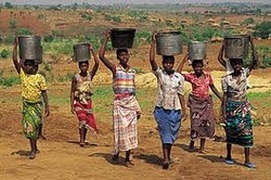 This is the first trip I have taken to Malawi that I can admit I didn't fully enjoy. I am one of Malawi's biggest supporters but I have to be honest and admit that I am losing things to support. Malawi used to be beautiful but our countryside is being severely ravaged by its own people. The two key environmental problems I observed: 1. Heavy deforestation and 2. Frequent small-scale forest and countryside fires I drove from Blantyre to Ku Chawe Inn in Zomba then to Kasungu and back down along the lakeshore road covering over 1,200 kilometres. I completely lost track of the forest fires I saw during the day and at night. Even within Blantyre you constantly smell smoke from burning leaves and cars that should no longer be on the road. This pollutes the air and the scenery. Club Makokola is the only place I found that confirmed they do not burn their leaves. They sweep them all into flower beds and use them as compost. It actually looked strikingly pretty. I wish everyone would follow suit. Malawi doesn't have much in the way of natural resources. What we do have, or used to have, is gorgeous countryside and that is now mostly gone. It's more than sad. I often drive into the British countryside and despite the terrible weather the British countryside is lush, inviting and unpolluted. I have never seen a fire being burnt and developments are controlled to minimise environmental pollution. Malawians in Malawi, why are you sitting by the wayside and allowing your country to be destroyed? Is barren countryside what you aspire to leave your children? The poor may claim to need firewood but why aren't they replacing the trees they fell? The soil is very fertile; there are seeds everywhere. Plant trees and use fallen leaves as compost. When you've cut down all your trees what will you do then? Die from hunger and starvation, that is what. This does not have to be a Government-level problem. Everyone needs to take some responsibility. Replace trees that have been felled! Amongst many problems, missing trees means less carbon dioxide is removed from the environment and any strong wind becomes a sand storm. If our country can't match the beautiful scenery of other African countries we can expect even fewer tourists and even less forex than is currently available. I can't believe people don't see the wider repercussions of deforestation and burning fires. Honestly, do you need a degree to see these things? It's time for action. Wake up. Stop sleeping, beer-drinking or whatever it is you do in your spare time, start planting trees and stop burning fires! As you watch this destruction keep in mind that the Sahara Desert was once a forest and we are very much moving in that direction. You've been warned! 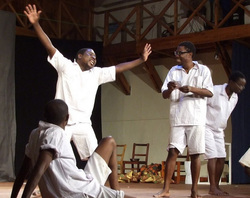 I had no idea that dramatic arts in Malawi had reached this quality. This play was astoundingly awesome. It was extremely well acted, it had great sound effects and they dealt with the tough subject matter in a humorous fashion. If you ever have the opportunity to see this production, grab it with both hands! Description of play from Africa Centre website: Malawi in the 1980s was a dangerous place. People disappeared. Even President Banda’s cabinet were not safe. Banda ordered his Young Pioneers to act against anyone who opposed the president. And Crocodiles Are Hungry At Night is an adaptation of award-winning poet Jack Mapanje’s prison memoir of the same name. In 1987, Jack Mapanje, then a little-known academic, linguist and poet, was imprisoned without charge at Mikuyu prison in Malawi. Despite an international outcry led by Amnesty International and supported by many writers and artists including Wole Soyinka, Harold Pinter and Ronald Harwood, he remained there for 3 years, 7 months, 16 days and more than 12 hours. He was never told why. This is his story. It is a story bursting with hope and humour, and the extraordinary people who survived President Hastings Kamuzu Banda’s attempts to silence his opponents. Living with the threat of death by a ‘car accident’ or being thrown into the crocodile-infested Shire River, Jack Mapanje and his fellow prisoners of conscience survived the dreadful conditions with a spirit of optimism and humanity, which is both uplifting and extraordinary. Everything in this play is true. 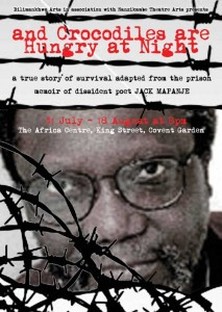 And Crocodiles Are Hungry At Night the prison memoir was published last year by Ayebia Clarke publishing, and launched at an event hosted by Amnesty International. The book has created a lot of interest both in Malawi and the UK; Jack Mapanje was recently interviewed alongside Nadine Gordimer on BBC Radio 4’s Start the Week, and the play has been booked for the Shakespeare Birthplace Trust’s poetry festival in July. The play runs for 105 minutes, and plays without an interval. Agreed. We Malawians are a very unique, funny, high-spirited and optimistic bunch. Today, is my one monthiversary and I have decided to give a tribute to the awesome motherland by linking in this video from Kiwiz007.
On 27 April 2011, it was confirmed that the British High Commissioner to Malawi, Fergus Cochrane-Dyet, had been expelled from Malawi because the President, Bingu wa Mutharika, was displeased with a report he had sent to Britain highlighting the Malawian President's increasingly dictatorial style.
In retaliation, the British Government has asked Malawi's Acting High Commissioner in Britain, Flossie Gomile Chidyaonga and her dependents to leave. I knew this news was the beginning of worse things to come and all Malawians are really scared for the country: some rumours have it that Britain will stop all aid to Malawi within the next six months. The only people that stand to lose out are the innocent poor. So that you can grasp how desperate the situation is, below are some of Malawi's development stats:
In his second term, even his supporters have disputed many of his decisions: he purchased a $13.3m jet (supposedly a Government asset) which itself led to a reduction in aid from Britain and other countries (see below graph), the ensuing lack of forex has led to severe fuel shortages, press freedom has been curtailed, he spent $2 - 4m in 2010 on wedding celebrations for his second marriage (the first wife died of cancer in May 2007), he spent money that the country could ill afford on changing the national flag, despite national protest. With another three years left to his term, I wonder what else we can expect. Bingu has bitten the hand that feeds us but I hope that Britain can see beyond the despot's actions to the needs of the destitute people that he is supposed to represent. |
By Heather
|
Heather Katsonga-Woodward, a massive personal finance fanatic.
** All views expressed are my own and not those of any employer, past or present. ** Please get professional advice before re-arranging your personal finances.


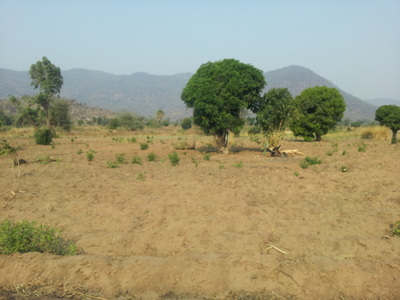
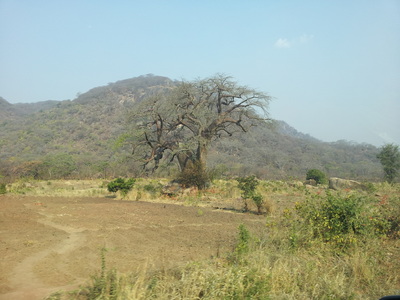
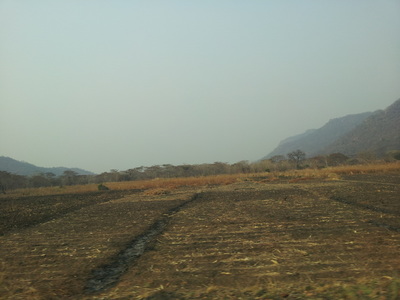
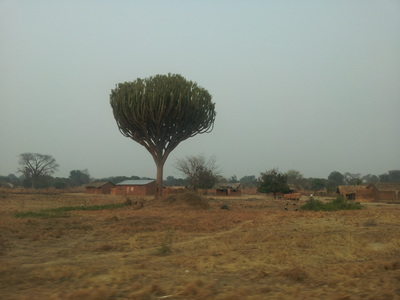





 RSS Feed
RSS Feed


